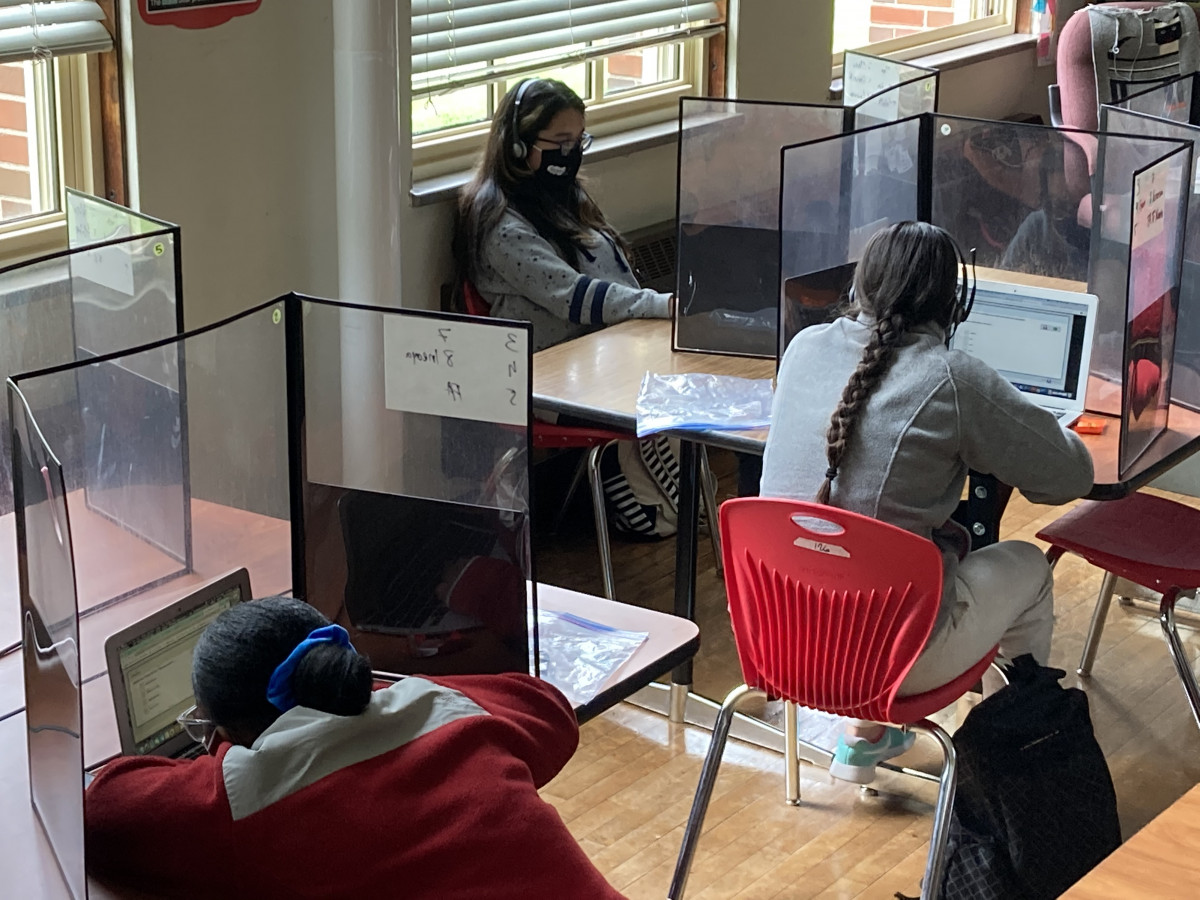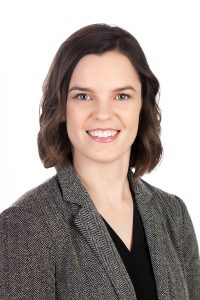“How Do I Language?”: Linguistic Justice Lessons from Ninth Grade
0May 28, 2021 by Whitney Morgan and Collin LaJoie



Background
Last summer we had the opportunity and privilege to meet with Bread Loaf professor Dr. April Baker-Bell as she presented on linguistic justice during a BLTN session. Her calls for “critical conscious-raising of linguistic justice” and for confronting systems of white supremacy in both language and society were catalysts for our collaborative unit for our ninth grade English students. With a thematic focus on identity in our English 1 courses, we introduced a new unit that explored the relationship among language, race, and identity to our fellow freshmen English colleagues in our building. We have been collaborating on its design using Dr. Baker-Bell’s book Linguistic Justice: Black Language, Literacy, Identity, and Pedagogy as our foundation. In the beginning stages of our collaboration, we quickly realized how critical this unit is as an entry point for freshmen into high school ELA as well as for us in general as language educators. The unit as outlined in Linguistic Justice importantly “offers ALL [our] students and [ourselves] a critical linguistic awareness of Black Language and windows into broader conversations about anti-Blackness, racism, and white linguistic hegemony” (Baker-Bell 100).
The impetus for the unit came from our own professional interests intertwined with the racial reckoning our country is undergoing, and our abiding need to better serve our students. The English department at our school site is overwhelmingly white, but our student population is more than 60% Hispanic and almost a quarter African American. What’s more, our school has a sizable refugee and immigrant population with students from around the world.
With the variety of languages and Englishes spoken at our school, we believe it is imperative to study how language and identity are inextricably connected, and how systemic linguistic racism, among other structures, acts in our own selves and lives, our classrooms, and society at large. In the end, we wish to equip our students with linguistic knowledge and empower linguistic agency and critical consciousness.
Unit Plan
While Black English was the center of our collective study in this unit, we also explored how to create opportunities for our students, who bring with them a wealth of language(s), to “imagin[e] a language of solidarity”.
With this goal in mind, we created an inquiry-based process at the end of our unit in which students explored the question, “How do I language?”.
Throughout their exploration, students gathered linguistic data or “field notes” where they observed and documented language(s) around them, collected linguistic memories, and conducted a linguistic interview. The next phase included primary reflections on their field notes and brought their reflections into conversation with a secondary source: a voice from our previous learning, including John Baugh, James Baldwin, bell hooks, and Gloria Anzaldúa; narratives by non-Black writers who are impacted by linguistic racism; and/or a source that spoke to their unique linguistic experiences. The inquiry process culminated in a final synthesis of their process with their final reflections.
Positioning our students as inquirers in this process was important to us for a few reasons. First, in light of the pandemic, student engagement throughout the school year dropped precipitously. Inquiry-driven and project based learning has been one way to bring students back because it invites freedom to explore issues that matter to them and to do so at their own pace to some extent. Also, we have found more student engagement with content when their own narratives are at the center of their learning; indeed, three-fourths of this project asks them to reflect on their own lived experiences, including those of the people close to them. Keeping student stories and experiences at the center of the project built a bridge that allowed students to access complex informational texts. Additionally, this inquiry approach opened our expectations regarding the end product. Our students’ stories and experiences are as varied as they are. This is why we are not requiring students to present their learning in one specific way, for example, in an essay, but are giving students freedom to create something that reflects their own unique knowledge and experiences.
Challenges and Limitations
An immediate challenge for us was beginning our learning together remotely and then transitioning to a concurrent teaching model partway through. Concurrent teaching meant that some students were returning to an in-person environment for the first time in over a year while students who opted to remain remote would be Zooming into the in-person course. This shift disrupted the learning flow as students and teachers adjusted to new formats. We momentarily paused to reacquaint ourselves with one another, take stock of the collective and individual journeys we’d been on, and ease into new procedures and COVID-19 safety measures and mitigations. When we returned to our language unit, we were forced to condense the inquiry process.
While we aimed to position our students as inquirers throughout this unit, we as teachers also strove to also maintain a learner and inquirer’s stance in our classrooms, alongside our students and colleagues.
It was this approach that helped our English 1 team to work through the divergences, disagreements, and consensus building that is the messy process of collaborative work. Most, but not all, of our English 1 professional learning community (PLC) has been a part of Stanford University’s Hollyhock Fellowship program. With mutually reinforcing national networks of educators to share knowledge with, we arrived at a concept that helped narrow the focus on our project. Near the beginning of the unit, we were borrowing materials from a colleague for a unit designed for juniors about linguistic prejudice and code-switching. As we dove in, we realized that not only were our students unequipped with the background knowledge to delve into this complex topic as freshmen, but that the idea of code-switching itself ran counter to our goals for the unit inspired by Baker-Bell’s work.
Around this time, we attended a virtual PD event hosted by a Hollyhock alum who introduced us to the concept of “code-meshing.” Unlike code-switching, code-meshing isn’t hierarchical; it doesn’t emphasize the use of certain languages and ways of speaking (e.g., White mainstream English) to access arenas (including schools, universities, and many workplaces) where power and influence live.
Instead, code-meshing celebrates and encourages the use of a person’s many languages and dialects to assert their own humanity in public realms, subverting power structures and democratizing language use.
This was exactly what we wanted our unit to be! We did not want to teach students that their languages and ways of speaking, and being, were only acceptable in some cases. Instead, we wanted students to recognize that everyone speaks many different languages, and although some people might have biases about language, in the end, their languages are a part of who they are and how they exist in the world, and that’s something to be celebrated.
At this point, we diverged somewhat from the course that our PLC was following. Understanding code-meshing helped us to further critique code-switching, but at the same time, we didn’t want to completely derail the entire unit. Fortunately, our group embraces difference. We were also able to speak to what we were doing and why, thus introducing our colleagues to code-meshing in a subtle way. As it turns out, our colleague who had brought our attention to the materials initially had essentially come to her own understanding about the problematic aspect of the direct instruction of code-switching, and our conversations helped empower her and give vocabulary to what had already been bouncing about in her head.
Conclusions and Next Steps
Through surveys, our students recommended that this unit be taught again in future years. They highlighted the interview and linguistic memory narrative writing as some of their favorite activities. One student shared that this unit caused her to question language in a way she never had before. Her reflection included her renewed sense of linguistic agency to choose how and when she would use Spanish ( a language she realized she’d internalized as being inferior to White Mainstream English) and her desire to question additional systems within her life. Her excitement to continue this type of learning got to the heart of our initial hope as instructors: to empower students’ critical consciousness while also facilitating a space for linguistic solidarity, validation, and celebration among our multilingual students and their lived experiences.
While importantly varied in their details, many students’ linguistic memories commonly exposed feelings of shame, fear, embarrassment, and judgment. In these stories, languages as a weapon often excluded, sorted, and disconnected students from others and/or themselves. There were narratives too where language ushered in intense relief, was a source of laughter and humor, and became an immediate tool for community. In these stories, language connected the communicator to others, their families, and ancestral histories. Language in these stories became a site of rebellion—resistance to a status quo that constrained their identities and their self-expression.
We both agree that pairing critical texts with student-driven inquiry and personal narrative is the unit’s greatest success. We found great energy in breaking down the mythical distinction between critical thought and daily life. Colleagues at one point questioned if bell hooks, James Baldwin, and John Baugh were too rigorous for freshmen. Through summaries and excerpts paired with personal connections and narrative writing opportunities, we found the opposite to be true. One student’s final inquiry synthesized vignettes from her interview and linguistic memory around a concept she pulled from Baldwin on the ways that language controls experience. Another’s lightbulb moment connected bell hooks to James Baldwin to herself. Her inquiry began from her question: “If hooks said that your experiences are a way of knowing, and Baldwin taught us that Black English comes from the Black experience in the United States, then isn’t discrediting Black English discrediting Black knowledge too?”
This unit, this year, is a seed of what it has the potential to grow into. The remote environment did not lend itself to the type of community-building that a communal in-person setting can accomplish. Switching to concurrent teaching at the start of the inquiry process, near the end of the unit, all while in many ways truly seeing each other for the first time, revealed that while students were generating claims and making personal connections and building beautiful linguistic syntheses and core messages about language, the relational safety for in-person vulnerability was not secure enough to facilitate an authentic project exchange. We plan to build in more opportunities for student exchange, culminating in a multimodal, multilingual celebration of knowledge and language. We hope to bring in more Black English artifacts and opportunities for linguistic advocacy, not withholding our own classrooms, school, and community from introspection and criticism.
Another just as critical success of this unit is the way that it has fostered personal and collegial introspection, reflection, and criticism among language teachers. Teachers are best as students, and this unit holds a mirror to our own linguistic practices in the classroom and positions ourselves as learners with and from our students. While our English 1 PLC has engaged in this work and devoted our collaborative learning and instructional planning to linguistic justice in ways we never have before, we still see opportunity to invite more teachers into this ongoing practice of self-examination. Arming students with linguistic critical consciousness their first year of high school creates a critical foundation for their progression of learning within English Language Arts courses and in other disciplines. We acknowledge the ways in which schools are “linguistic battlegrounds,” as well as generative spaces where the work of linguistic critical consciousness is never truly done.
Collin LaJoie is a 2020-21 Endowed Audacity Fellow.
Whitney Morgan-Davis is a 2020-21 Audacity Fellow.
Category Featured, Spring 2021 | Tags:



Leave a Reply